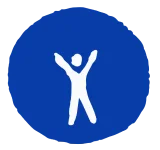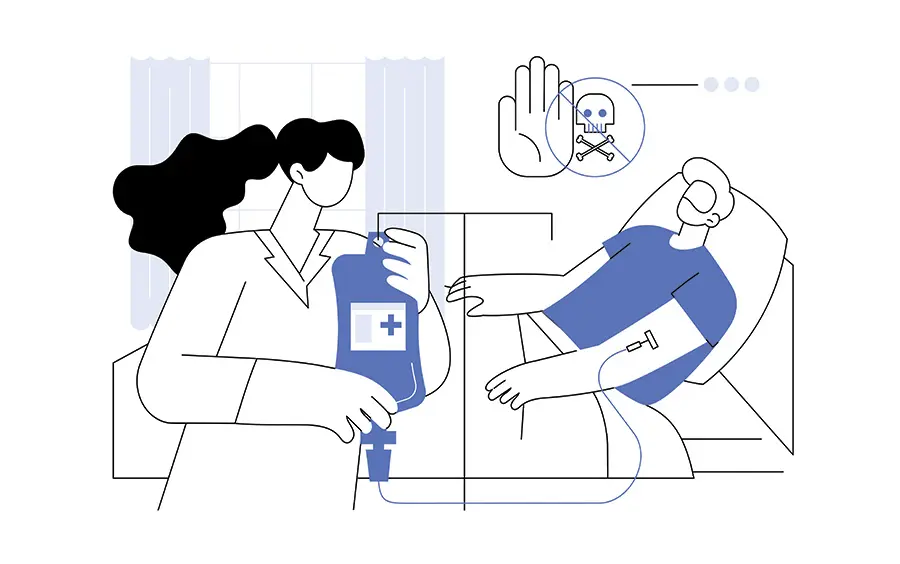
In the battle against addiction, medication-assisted treatment (MAT) has become a strong support for recovery. MAT is an innovative treatment that combines the use of addiction medication, addiction counseling, and behavioral therapies for a holistic approach to the treatment of substance use disorders. With more virtual options available, these life-transforming services are now more accessible than ever.
MAT has been particularly effective when it comes to treating opioid, alcohol, and prescription medication addictions. Medication for addiction helps ease your withdrawal symptoms, reduce cravings, and balance the brain’s chemistry. By managing these uncomfortable symptoms, you can better focus on maintaining sobriety, especially during the early stages of recovery.
Counseling and behavioral therapy are essential parts of MAT. They help you understand and change behaviors related to substance use, develop healthier coping strategies, and repair damaged relationships. These elements are crucial for uncovering the root causes of addiction and supporting long-term recovery.
The FDA has approved a number of medications for opioid use disorder (MOUD) and for alcohol use disorder (MAUD). The specific medication used will depend on your individual needs and the addiction(s) being treated.
It’s important you speak with a licensed professional before taking medication for addiction. Medications for substance use disorder require a prescription. Your doctor will determine the appropriate dosage and frequency, and provide instructions on how to monitor and reduce negative side effects.
The following are common medications for substance abuse treatment:
Buprenorphine is a partial opioid agonist that is commonly used in the treatment of opioid addiction. It works by binding to the same receptors in the brain as opioids, which can help to reduce cravings and withdrawal symptoms.
Naltrexone (Vivitrol) is an opioid antagonist that is used in the treatment of both opioid and alcohol addiction. It works by blocking the effects of opioids and alcohol on the brain, which can help to reduce cravings.
Suboxone is a combination of buprenorphine and naloxone. It is designed to treat opioid addiction by reducing cravings and withdrawal symptoms, while also discouraging misuse of the medication.
Other medications used in MAT include methadone, an opioid agonist that is used to treat opioid addiction. Eleanor Health does not prescribe methadone for addiction treatment. Medications for alcohol addiction include Disulfiram and Acamprosate.
At Eleanor Health, prescriptions and treatment plans are tailored to meet your specific needs and goals. Learn more today about all the medications for addiction treatment prescribed by Eleanor Health.
There are numerous benefits associated with medication-assisted treatment. From reducing the risk of overdose to ongoing support throughout your sobriety journey, MAT helps you break free from addiction effectively without the negative impacts of quitting a substance abruptly.
One of the primary benefits of MAT is its ability to reduce the risk of overdose significantly. Certain medications for addiction used in MAT, such as buprenorphine and naloxone, can help prevent overdose by blocking the effects of opioids on the brain. So no matter how much of the substance you take, you won’t be able to overdose due to the antagonist nature of the MAT.
MAT can also help to alleviate the uncomfortable and often severe withdrawal symptoms associated with opioid, meth, and alcohol addiction. Quitting alcohol and drugs can wreak havoc on the body, sometimes making it impossible to stop use. Depending on how long you have abused the substance, the withdrawal symptoms can even be fatal. By reducing cravings and withdrawal symptoms, MAT can make the recovery process more manageable and increase the chances of long-term success.
When it comes to MAT, your treatment plan should be tailored to your unique needs, considering factors like substance abuse, co-occurring mental health conditions, and personal circumstances. MAT is one of the most flexible addiction treatment options, with the ability to adjust your treatment plan based on your stage of recovery.
One of the most beneficial aspects of MAT is ongoing monitoring. You may need more or less support as you progress through your recovery. Having an addiction healthcare provider with whom you schedule regular check-ins is essential for timely interventions in dosage, medication frequency, and even the type of medication.
Eleanor Health offers online addiction treatment for alcohol, opioids, meth, and more.





Eleanor Health currently accepts members in Colorado, Florida, Idaho, Louisiana, Massachusetts, Missouri, New Jersey, New Mexico, North Carolina, Ohio, Pennsylvania, Texas, and Washington (Illinois and Montana coming soon). Our services are available remotely from anywhere in the state.
You can do your entire treatment online, including getting a prescription for suboxone or other FDA-approved addiction medications to stabilize your physical health. From the beginning, you will work on getting better with our counselors and peer recovery specialists.
While detoxification is not always required before starting medication-assisted treatment, it may be recommended in some instances. Detoxification, also known as detox, is a process that helps to manage withdrawal symptoms and prepare the body for MAT safely. During detoxification, the body undergoes a series of changes as it eliminates toxins and adjusts to the absence of the substance it has become dependent on. This process can be challenging and uncomfortable, as withdrawal symptoms can range from mild to severe.
The decision to undergo MAT should be made in consultation with an addiction specialist or healthcare provider. They will consider various factors, such as the type and severity of substance use disorder, your overall health, and your readiness for treatment. In some cases, detoxification may be necessary to ensure the safety and effectiveness of MAT.
Depending on the substance abused, withdrawal can be fatal. For example, long-term alcoholism can result in seizures upon quitting drinking. This is why you can’t start a medication like Disulifram which makes alcohol putrid, because you will end up quitting alcohol cold turkey leading to potentially dangerous consequences. So while the goal is MAT, you will need to detox first and then start taking medication for addiction.
These medications can assist in recovery by blocking or reversing the effects of opioids. They can be administered in the form of a tablet, film, implant, or injection. Injections will need to be administered at an Eleanor Health clinic.
Eleanor Health does not prescribe Methadone.
Learn more about medications for opioid addiction treatment.
These medications can reduce alcohol cravings but should not be taken while consuming alcohol due to serious side effects:
Learn more about medications for alcohol addiction treatment.
Many insurance plans include coverage for MAT. Eleanor Health accepts most major insurance plans including Aetna, Blue Cross Blue Shield, Medicaid, and United Healthcare. If we don’t contract with your insurance plan, we will work with your out-of-network benefits to ensure you still benefit from insurance.
Call us or fill out this insurance verification form and one of our specialists will reach out to you to discuss what services may be covered and additional payment options.
Medication for Addiction Treatment (MAT) is considered to be highly effective. Studies have shown that MAT can reduce the risk of death from a substance use disorder by more than 50% and up to 90% of people who use MAT maintain their sobriety at the 2 year mark.
Discover important information about medications for opioid and alcohol addiction, including potential side effects and recommendations.
 What is Medical Detox?
What is Medical Detox?
 Suboxone While Pregnant – Is it safe?
Suboxone While Pregnant – Is it safe?
 Vivitrol and Drinking: What You Should Know About Vivitrol and Alcoholism
Vivitrol and Drinking: What You Should Know About Vivitrol and Alcoholism
Call today to speak to one of our recovery specialists. We are ready to listen, learn and offer support without judgment.